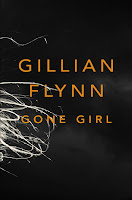 I should actually have reviewed One of Us is Lying ages ago, ideally some point after I read it way back in August. I wasn't going to bother because I had ridiculously conflicting opinions about this book, but then I've seen just one two many glowing review to not stick my oar in.
I should actually have reviewed One of Us is Lying ages ago, ideally some point after I read it way back in August. I wasn't going to bother because I had ridiculously conflicting opinions about this book, but then I've seen just one two many glowing review to not stick my oar in.Plot summary: On Monday afternoon, five students at Bayview High walk into detention.
Bronwyn, the brain, is Yale-bound and never breaks a rule. Addy, the beauty, is the picture-perfect homecoming princess. Nate, the criminal, is already on probation for dealing. Cooper, the athlete, is the all-star baseball pitcher. And Simon, the outcast, is the creator of Bayview High’s notorious gossip app.
Only, Simon never makes it out of that classroom. Before the end of detention Simon's dead. And according to investigators, his death wasn’t an accident. On Monday, he died. But on Tuesday, he’d planned to post juicy reveals about all four of his high-profile classmates, which makes all four of them suspects in his murder. Or are they the perfect patsies for a killer who’s still on the loose?
Everyone has secrets, right? What really matters is how far you would go to protect them.
I suppose the most important thing is that I enjoyed reading this book. It's written reasonably well, the dialogue isn't stilted and weird, and the narrative isn't clunky. It flows great and I kept turning the pages. My problem was that I didn't think certain... issues are dealt with in a respectful fashion.
The narrative follows four characters, each with their own chapters told in the first person. Perhaps surpringly for a YA contemporary novel, I actually quite liked them. Each character fits neatly into one of the teenage stereotypes - the vapid popular girl, the sports star, the tortured soul and the nerd. I think this is done intentionally so it's not as cloying as it sounds.
They're actually pretty great. Each character has a distinctive voice to separate them from the others and their personalities have a surprising depth. My favourite was Addy, the popular clique girl who is slowly starting to break free of her pre-determined role and consider whether this is really who she wants to be after all.
Each of these characters has a secret, hence their potential motive for murdering the person about to reveal it. Some of these 'secrets' are infinitely more interesting than others - Bronwyn's, for example, is most definitely not a big deal and Nate's is practically plastered on his forehead. That said, I really liked Cooper's grand reveal, which I didn't see coming at all. It's a mix, in short.
So who killed Simon? ARGH, I really need to talk about this but it's obviously ridiculously spoilery. I'm just going to have to say that I was really disappointed with the ending. I guessed the ending almost immediately but decided I was wrong because it was too obviously and there must be a twist. There wasn't.
But that's fine, I can deal with a predictable ending because I really enjoyed the characters. I have massive issues with another area of the book though, but it's an issue that would be spoilery if I even told you what the issue was.
Essentially, a certain character's actions are promoted and almost encouraged in a very damaging way. There's no discussion as to the reason behind their actions and it results in only benefits to that person, which is horrific. Nobody gets any comeuppance for their actions, neither for the issue that I'm dancing around or for the 'secrets' that made the characters suspects in the first place.
So yes, while I enjoyed the act of reading One of Us is Lying due to the great character development, the ending was predictable and certain serious issues are dealt with in a very cavalier light.
If you've read this, please talk to me about it. Am I the only one who had similar issues?















